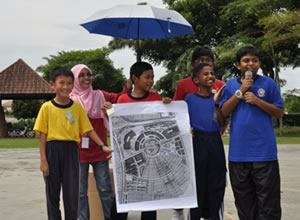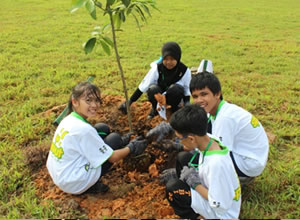Research
Energy-saving strategies in buildings
Passive cooling techniques (Malaysia)
One of the key components of building energy consumption in hot-humid climate is cooling by air-conditioning. Alongside rapid urbanization and modernization, most of the present houses in Malaysian cities and towns are brick and concrete buildings that likely require air-conditioning to maintain indoor thermal comfort. This study aims to develop passive cooling strategies for these modern urban houses. The effects of several passive cooling techniques on the indoor thermal environment of typical terraced houses are investigated through field measurement and numerical simulations. In order to apply and evaluate the developed techniques in actuality, experimental houses will be constructed in the campus of Universiti Teknologi Malaysia (UTM), Johor Bahru, Malaysia.
 |
 |
Reevaluation of cooling techniques in vernacular architecture (Malaysia)
Vernacular architecture is often regarded as exemplary low-energy and sustainable buildings. This is because it is usually developed over time as responses to experience of the local conditions and use, including the local climatic conditions and people's comfort needs. The main purpose of this study is to make scientific reevaluation of the passive cooling strategies in different types of vernacular houses in the hot-humid climate of Southeast Asia. Field measurements were conducted in the Malay houses and traditional Chinese shophouses in Pontian and Malacca, Malaysia respectively. The identified passive cooling techniques will be eventually applied to modern houses in the region.
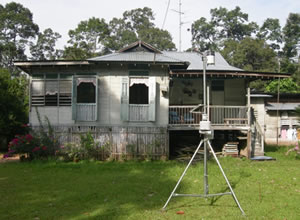
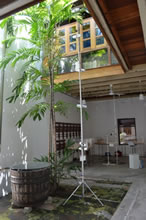
Life cycle assessment for residential buildings (Indonesia & Malaysia)
Life cycle assessment (LCA) is a well-known analytical tool for assessing the environmental impacts of a product in its life span. One of the obstacles of conducting LCA in developing countries is the relatively poor data availability. Though LCA basically requires a wide range of building, environmental and economic data, it is difficult to obtain these data comprehensively in these countries. Hence, the main purpose of this study is to develop a simplified LCA model for assessing the life cycle environmental impacts of residential buildings in developing countries. Indonesia and Malaysia were selected to be the representative countries in consideration of rapid population and economic growth.
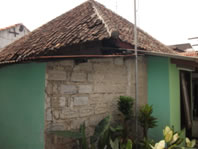 |
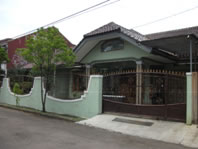 |
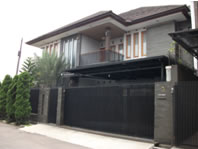 |
| Simple house | Medium house | Luxurious house |
Fig. Three categories of unplanned individual houses in Bandung
Energy-saving strategies in cities
Urban heat island in the tropics (Vietnam & Malaysia)
Most of the cities in Southeast Asia experience hot-humid climate throughout the year. Thus, urban heat islands (UHIs) in this region would cause considerable increase in annual cooling loads for buildings and therefore raise urban energy consumption significantly. It can be seen that the emerging economies in this region tend to propose large-scale master plans in their major cities and plan to further increase their urban populations. This study aims to predict the consequences of UHIs due to the changes in land-use by their master plans through numerical simulations. Case studies are conducted in Hanoi and Johor Bahru.
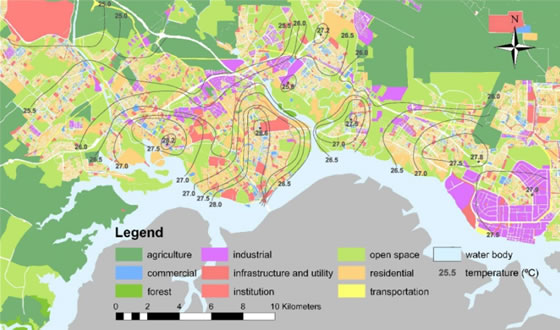
Fig. Air temperature distribution in Johor Bahru (3:45-4:45am, 24 Sep 2008)
Environmental education
Children's participation (Malaysia & Cambodia)
The goal of this study is to develop a participatory workshop method for use with children to help mitigate urban heat islands (UHIs) in developing countries. It has been widely reported that green areas play a significant role to create cool spots in cities and divide UHIs. Thus, this study attempts to find out a means to promote green spaces in urban areas through a participatory approach. Since children account for a large portion of the population in most of the developing countries, this study focuses especially on the children’s participation. A case study was conducted in Johor Bahru in collaboration with the Green Innovative Research Group (GIRG), UTM, Malaysia.
